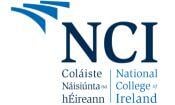
As part of the Centre for Education and Lifelong Learning at National College of Ireland’s Festival of Education and Lifelong Learning, a practice-based early childhood education seminar took place. This event focused on the opportunity digital storytelling represents as a pedagogical tool in early childhood education and Reflective practice in ECEC Educator preparation. Part one of the seminar, which focused on digital storytelling, was facilitated by Dr Marianne Undheim, Associate Professor and Lecturer at the University of Stavanger, Norway.
Two BA (Hons) in Early Childhood Education and Care students, who are in their third year of the degree, contributed to the discussion on digital storytelling by sharing professional examples from their own classrooms. Karine and Lisa explain their initial hesitancies, what encouraged them to engage in the process and the reaction from their students to the final product below.
Karine
When Karine dos Santos McMahon, a Room Leader Educator working with children aged between 2 and 3 years old, first heard about digital storytelling, she thought her students were too young to benefit from this new learning idea. While noting that the concept seemed to be incredibly interesting, she felt that she ‘"did not know what it would look like in my classroom".
However, she dived into learning about digital storytelling as part of her BA (Hons) in Early Childhood Education and Care studies at NCI. After gaining knowledge of how the process can engage and teach young students in a transformative way, Karine "felt it was worth doing with her own students in the classroom". Even though her students are very young, they were able to naturally take the lead throughout the process. "The children were incredibly enthusiastic while participating and when they saw the final animation and recognised their own voices, they were amazed at what they had created".
“This process has opened up my mind to the active way digital technologies can be used within the ECEC curriculum.”
One of the big learnings from this experiment for Karine is that she now "understands that most projects can be adapted for young children, this group do not have to be excluded from new methods of learning with digital technologies." This activity gave her students the opportunity to have a voice, to lead, to use their creativity freely and, most importantly, to interact with technology with a purpose.
After such a positive experience engaging in digital storytelling, Karine shared her learnings with her teaching colleagues who then created digital stories in their own classrooms.
Lisa
As an educator and a mother, Lisa Glynn was initially opposed to using technology in early childhood settings as she "only thought of examples such as TV time as a reward for good behaviour or as an easy way to manage children."
However, through co-constructing digital animated stories with the children in her classroom, she discovered that "early learning in a digital world is much more than TVs and iPads." As Lisa started to notice how much technology was already in use in early childhood education, she began to understand the opportunity it represents.
“Technology can be used to aid children’s learning, especially as the world around us continues to grow rapidly towards everyday use of devices.”
When reflecting on the experience, Lisa shared that her students "thoroughly enjoyed and engaged in many steps of the digital movie process and loved seeing their final creation, as did their families." We’re sure this is something their parents will treasure for many years to come!
Just like Karine, Lisa had the best interests of her students in mind when it came to using technology in the classroom. Understanding the benefits of introducing new concepts with the help of devices and specially designed tools, with academic support from their BA (Hons) in Early Childhood Education and Care degree, encouraged them to change their mindsets and transform their classrooms through the use of digital storytelling.
Interested in studying early childhood education and care? You can study the BA (Hons) in Early Childhood Education and Care full-time during the day or in the evening starting in September.










